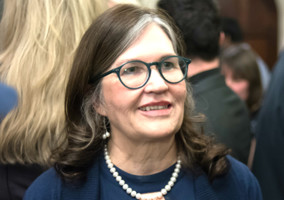Tania Mason looks at unitary boards and whether the Charity Commission is right in its decisions to allow or disallow them.
Last month, I was invited along to The Advocacy Project’s board meeting to witness the debate and the vote on whether the charity’s chief executive should join its trustee board.
The vote was affirmative, and The Advocacy Project will now begin the process of changing its governing document to enable Judith Davey to become a trustee.
Davey had many reasons for wanting the change, but two stood out for me. First, she felt disempowered by doing so much day-to-day “heavy lifting” yet not being party to the strategic decision-making, and second, it felt fundamentally wrong that she bore less legal responsibility for the charity than its service-user trustees with learning disabilities.
As our cover feature in this month's Governance & Leadership magazine this month shows, the arguments for and against unitary boards are many and varied, and the cause of much discussion in the sector at present. Oxfam International’s treasurer Bob Humphreys is even trying to drum up funding for a research project to evidence the efficacy of different board structures.
But even if this research did show that unitary boards improved accountability and decision-making and organisational impact, it would still require a change to charity law to enable them to become standard across the sector. I suspect that Parliament will have rather bigger fish to fry over the coming months and years; the composition of charity boards is unlikely to rise to the top of the legislative schedule.
However, there is a role here for the Charity Commission. At the moment, the Commission claims that any charity can have its CEO join the board, without first needing to get the regulator’s permission – but that that charity “should expect the Commission to take an interest”. This is obscure and confusing, and potentially unfair. Do we need the Commission’s consent, or don’t we? The British Heart Foundation’s Simon Gillespie reckons that “all the messaging coming out of the Commission is, ‘don’t even bother to ask’.” Similar confusion abounds around paying trustees. A number of charities have been told by the Charity Commission that they can’t pay their trustees, but RNIB pays its chair, and the Richmond Fellowship remunerates its trustees to the tune of £51,000 a year. It also operates a unitary board.
HCT Group has long wanted its CEO on its board, but been told by the Commission that it can’t. Yet The Advocacy Project is forging happily ahead, doing what it feels is the right thing for its charity and its beneficiaries.
For me, this is the heart of the argument. Most people involved in charities do genuinely want to do the right thing for their cause, and, like The Advocacy Project, will do their research and fully thrash out the pros and cons before coming to an informed decision that they feel is right for their organisation and its service users. The regulator should allow them to do this, and should help boards come to the right decision by setting out definitive rules explaining what tests a charity must meet in order to pass muster.
Yes, there are examples where organisations governed by unitary boards have crashed and burned, just as there are examples of those that had two-tier governance models and hit the skids – Kids Company, anyone? At the end of the day it’s not the structure that determines the success of a charity, it’s the quality of the people involved.
Related articles












